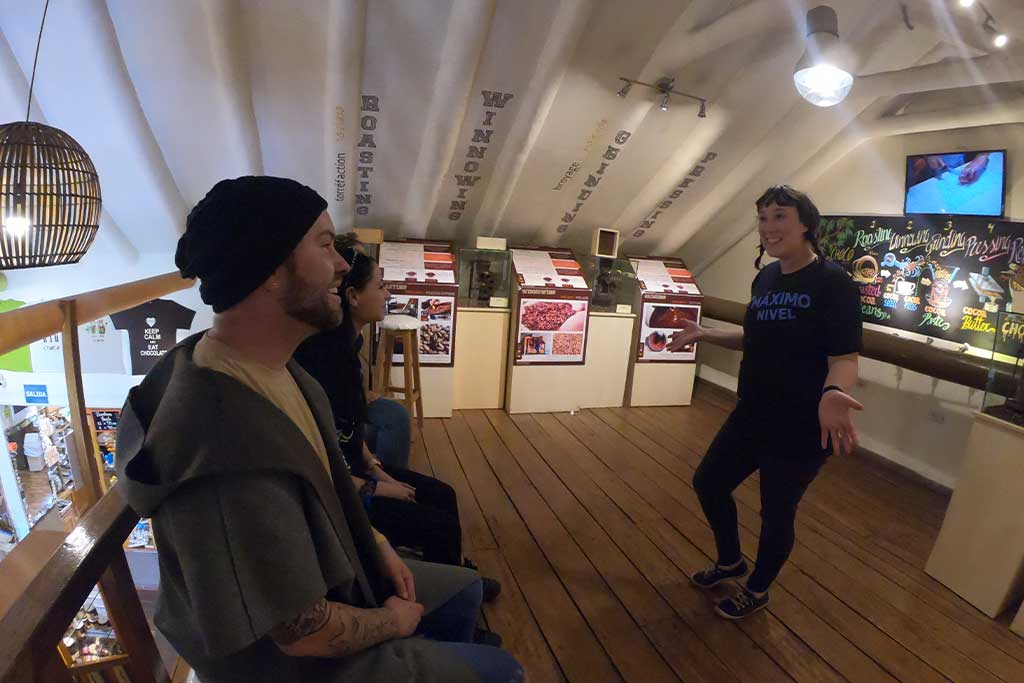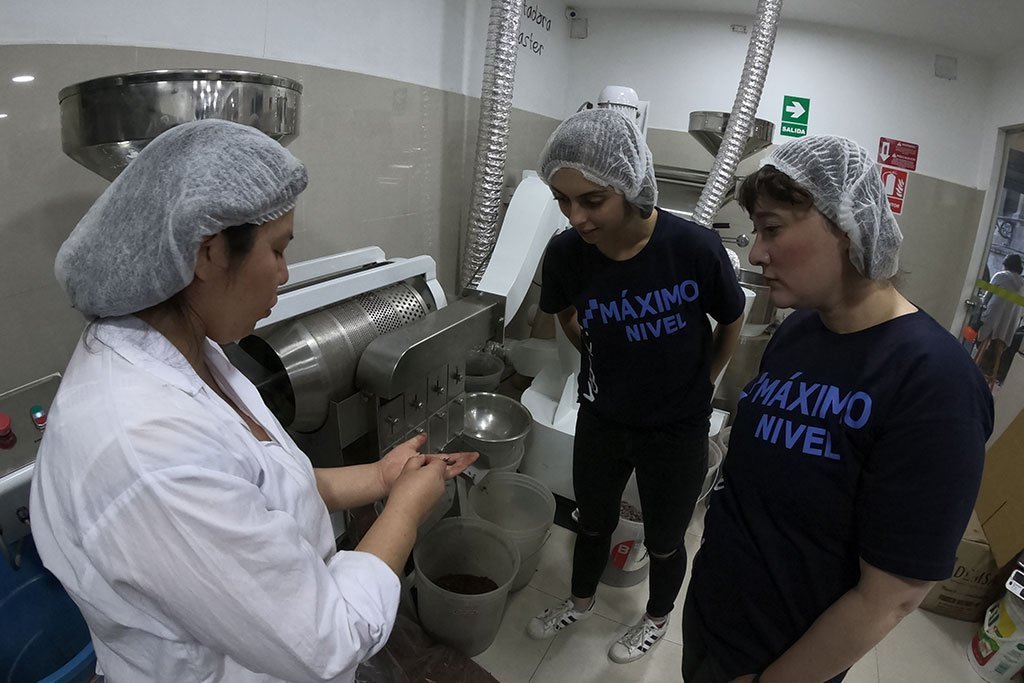It’s difficult to develop an authentic understanding of international business from the confines of your home country. Even though I had been studying business and international relations for three years, my scope of experience was limited to case studies, statistics and textbook overviews. Exposure to the global marketplace has become a vital part of any well-rounded entrepreneurial education. But how was I going to bridge the gap between theory and practice?
I wanted to add international work experience to my portfolio, so I started exploring summer internship opportunities abroad. If I found an approved provider, I could even petition to get credit for my trip. During my search, I spoke to a support agent at Máximo Nivel, and I immediately became interested in their “micro-business” internship programs across Latin America. Based on my background and professional objectives, I was placed in a small for-profit company located in Cusco, Peru.
Many developing economies in South America attract large-scale tourist attention. However, Cusco is unique. As the gateway to Machu Picchu, this Andean city hosts a constant flow of tourists from all over the world. Peru’s quickly expanding economy was the perfect context in which to explore international business. I spent two months interning for a chocolate company and taking daily Spanish classes at the Máximo institute.

My language skills improved dramatically during my time in Cusco, and I learned a lot about business operations and advertising by simply showing up to work every day. Although the company that advised me primarily manufactured chocolate products, the majority of its business was a result of strategic marketing in connection with the tourism industry. At each location, their company offers various tourist attractions, including tastings, truffle-making workshops and cooking classes.
Every branch has a free museum attached to the production facilities where tourists can watch the chocolate products being made from locally sourced ingredients. Several cities house these chocolate museums across four Latin American countries, and their merchandise is also sold online. The company has done an excellent job of mixing history and high-quality sweets to create an engaging experience for tourists of all ages. The operation is not as small as I had expected for being classified as a “micro-business,” but I was not disappointed.
It must be challenging for an international business to uphold consistent standards at its branches while creating mutually beneficial relationships with the communities it operates out of. I learned a lot from watching how my supervisors worked with, rather than alongside, Cusqueñean culture. Though the overarching business format was probably similar from country to country, my bosses embraced localized differentiation in their programs and products.

For example, the Cusco location incorporated pisco, as well as chocolate, into their products and tasting flights. Peru is very proud of its pisco industry, so it makes sense to offer pisco merchandise in Cusco as opposed to the Nicaraguan or Guatemalan sites. Cooking classes at the Cusco branch also begin in San Pedro Market—an open-air market frequently visited by tourists and locals alike. These small touches have made the business both internationally and locally successful.
My team also prided themselves on working in harmony with nature herself. Seasonal differences can change the taste of cacao. But rather than outsourcing, the company embraced variations between batches, countries, cities. They never lowered their quality standards, but my supervisors were very good at working with the resources they were given. The products they branded as seasonal actually made more sales on average, and guests enjoyed hearing about harvesting and production cycles during their tours.
And even though I wanted experience working at a for-profit organization, I was also pleased to see that the company was trying to be conscious of its effect on the local economy. It is difficult to foster sustainable practices locally while also developing a global presence. The executive I worked under was constantly brainstorming new ways to put profit back into the pockets of local workers and business owners. By broadening their sales reach abroad, the company was enabling themselves to pay suppliers and customer service agents in their own communities what they deserved.

I was able to observe not only how the Cusco branch operated, but also the role it played in a greater international distribution chain. Being paired with an in-country entrepreneur was the epitome of experiential learning. Nothing compares to becoming involved in the everyday routines of business owners and their employees. I spent a lot of time behind the scenes, learning about distribution, finances and international operations. The internship was very immersive and comprehensive. I even helped onboard a few new staff members.
Having worked in a Spanish-speaking office setting will also be a huge asset when I return to the States. I was able to assist the company with translation services during my months in Cusco. This helped me learn a lot of business vocabulary in Spanish, and I also felt really accomplished to be contributing to the company’s growing online presence. My opportunity to intern in the Andes was unforgettable. However, I believe that the professional experience I gained abroad will create even greater opportunities for me around the world.
